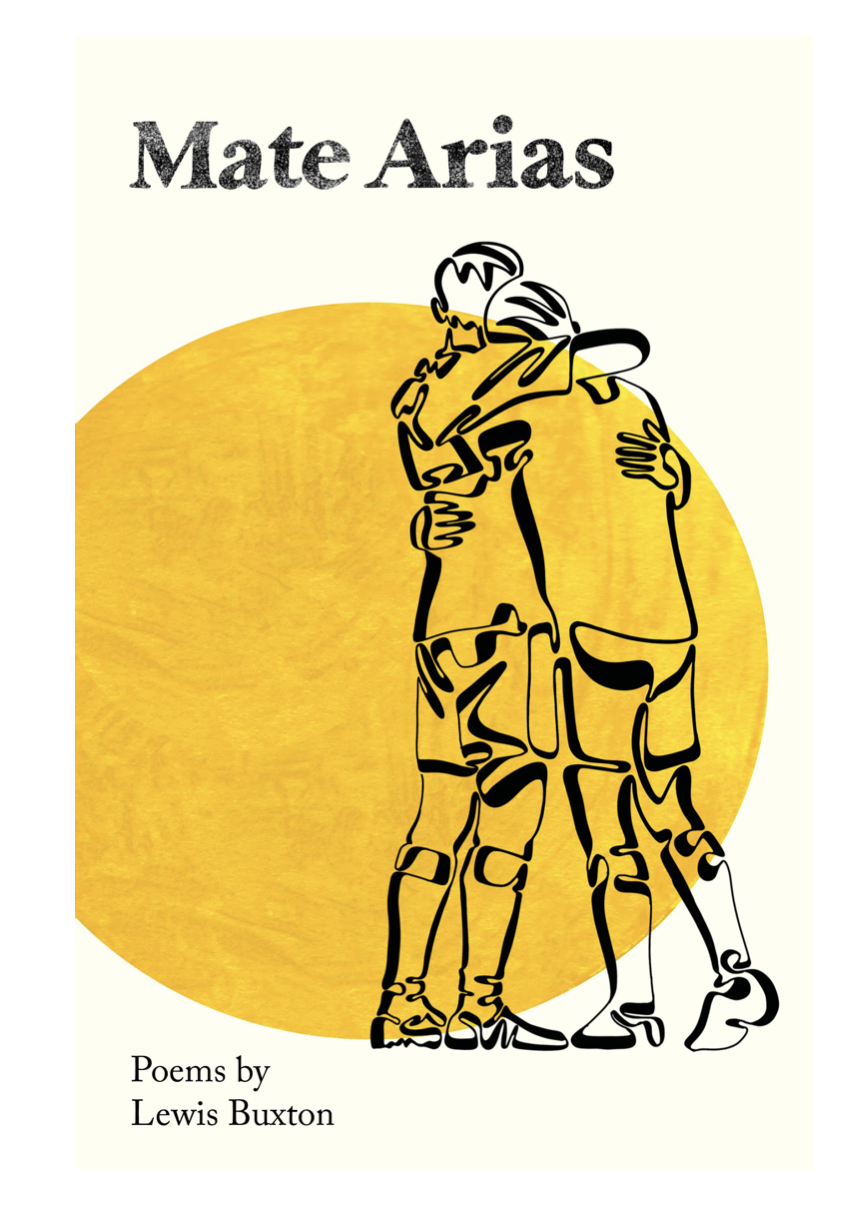
In Praise of Mate Arias by Lewis Buxton
Disclosure: Lewis is a friend and a fellow Norwich-dweller who I’ve known now for a number of years. I can claim no expertise in the parks and avenues of male friendship.
Mate Arias from The Emma Press is Lewis Buxton’s first solo pamphlet following his first full-length collection, Boy in Various Poses, published by Nine Arches Press in 2021, after he won the Winchester Poetry Prize in 2020.
Every poem in Mate Arias is a supporting column in the architecture of a tenderly rendered pantheon to friendship and the myriad forms of platonic love, particularly between men. The pamphlet is made up of twenty-three sonnets, each a vignette of affection, contemplation and memory.
Poems like “Cinema with Alex” and “Driving Lessons” are couched in the softness of nostalgia. Just as no moment with friends is a moment wasted, not a word goes awry here. Each poem is heliocentric, orbiting around a central idea, often gut-punching in their honesty and adept observation. In “Watching Films with Tom”: ‘
I splash my face and say
to myself Why am I so afraid to fall
asleep? With friends is it another kind of falling?’
Or in “Lonely Hearts F.C.”, an ad for football team friends:
Must be able to read the game
and the daft choreography of other men’s bodies.
‘I love her / and how we talk as if we do not also suffer’ the poem “Conversations with Friends” ends, and the pinpoint truth of the statement prickles. The ability of a poem to truly arrest is managed in this slim set with almost abnormal frequency. Though I have heard many of these poems read aloud, they cede none of their impact; in fact, they sing—these are arias after all—with an emotional intelligence and observance which rattles the cage of modern apathy.
Arias are operatic solos, and it is a fitting term—all of these poems have Buxton’s quality of performance; one only need choose a sonnet to read aloud to hear the pleasing aural quality. Full and half-rhymes, as in “Superhero Stag Do”, one of my favourites:
They are all wearing their very best pants
smartly on the outside of their trousers,
Daredevil’s drunk on too many pints
and Hulk’s been dancing for hours.
Tender turns of metaphorical phrase in a poem to a male friend with the colloquial title question “Alright mate?”: ‘You’re the first day of spring, aren’t you?’, and ‘God, what an unexpected cup of tea, / what a slow rainbow you are’. There is so much deliberate, genuine warmth in these poems; they are hearth sonnets, tiny tealights lit for friendship, nothing taken for granted.
It is difficult to write a good sonnet. To make true use of every line, syllable, to play or meander, to pause for silence. It should be near-impossible then to write twenty-three genuinely affecting ones, but here is Mate Arias. Perhaps a better term for these poems than columns is monasteries. Free-standing places of soft, quiet worship, each installed with a window, a central golden light: ‘Obituaries are the football statistics / of truth’: ‘
That’s the trick,
knowing who’s the hero in all of this’; ‘I’m a bed of runner beads,
haunted by what I could have been.
All friends are forests full of buried
secrets and childhood rabbits’. All this,
But we’re all here. The important thing is we are all still here.
Shannon Clinton-Copeland is an Irish-Jamaican poet living in Norwich. Her work has been published by The Rialto, Acumen, The Galway Review, and been commissioned by the National Centre for Writing. She is a Deputy Editor for Anthropocene. https://www.shannonclinton-copeland.com.
